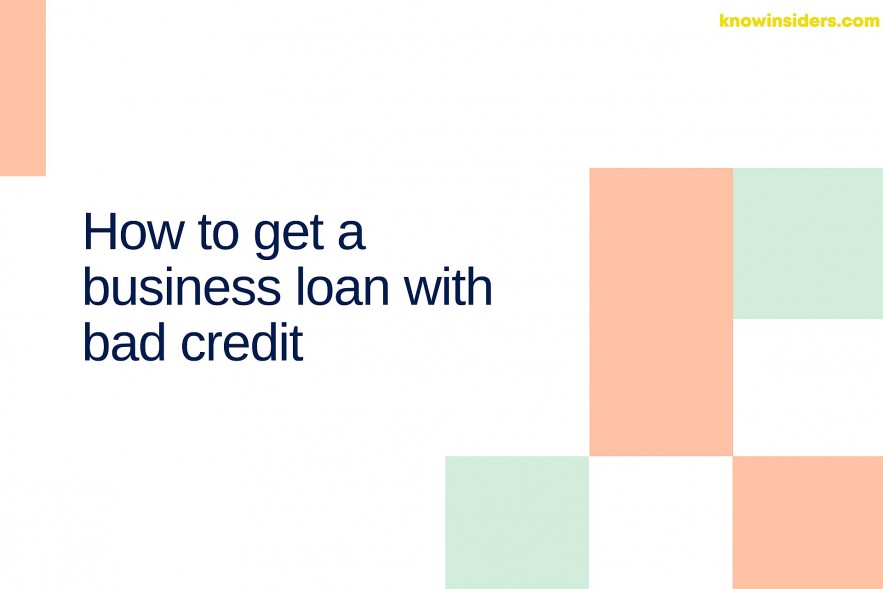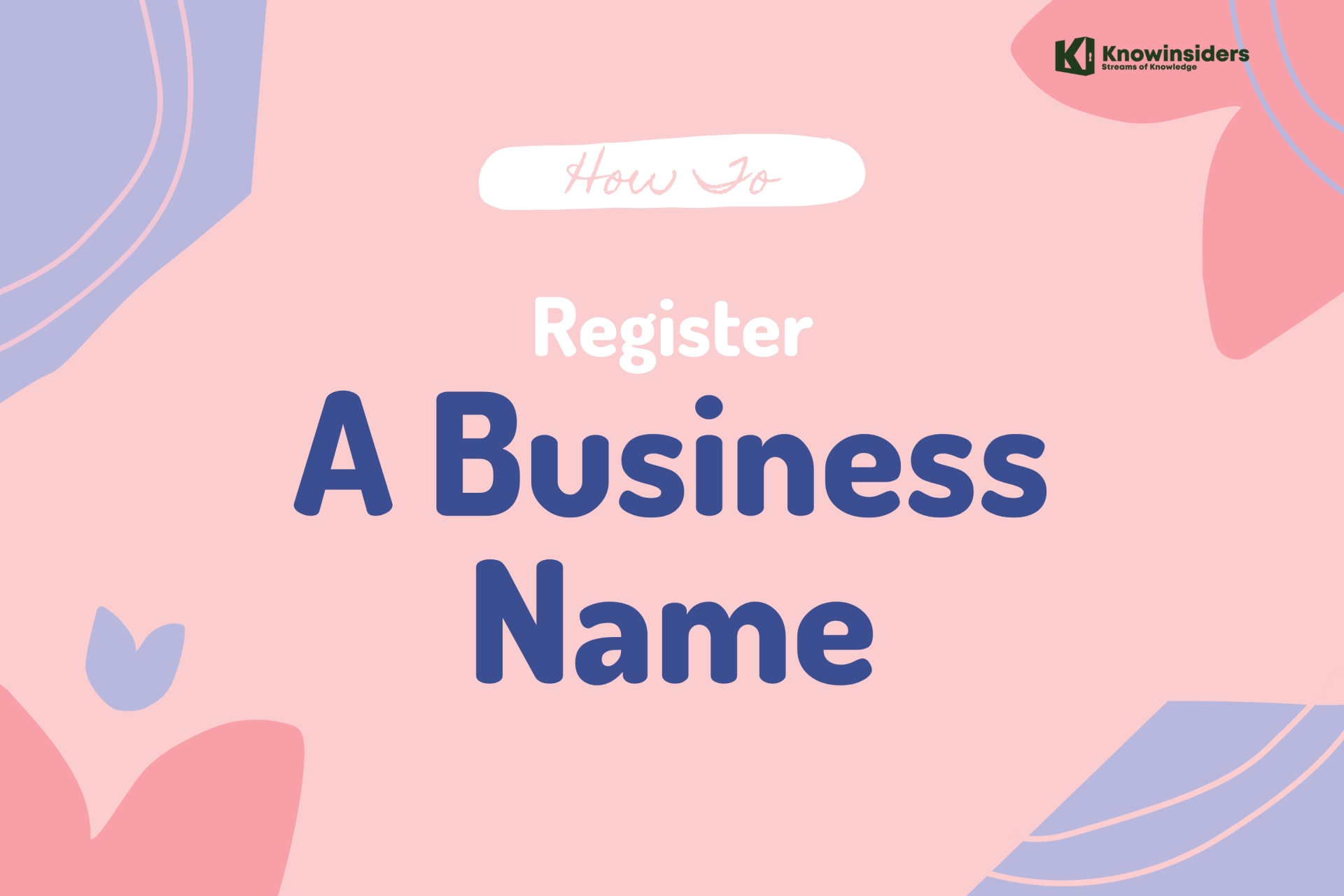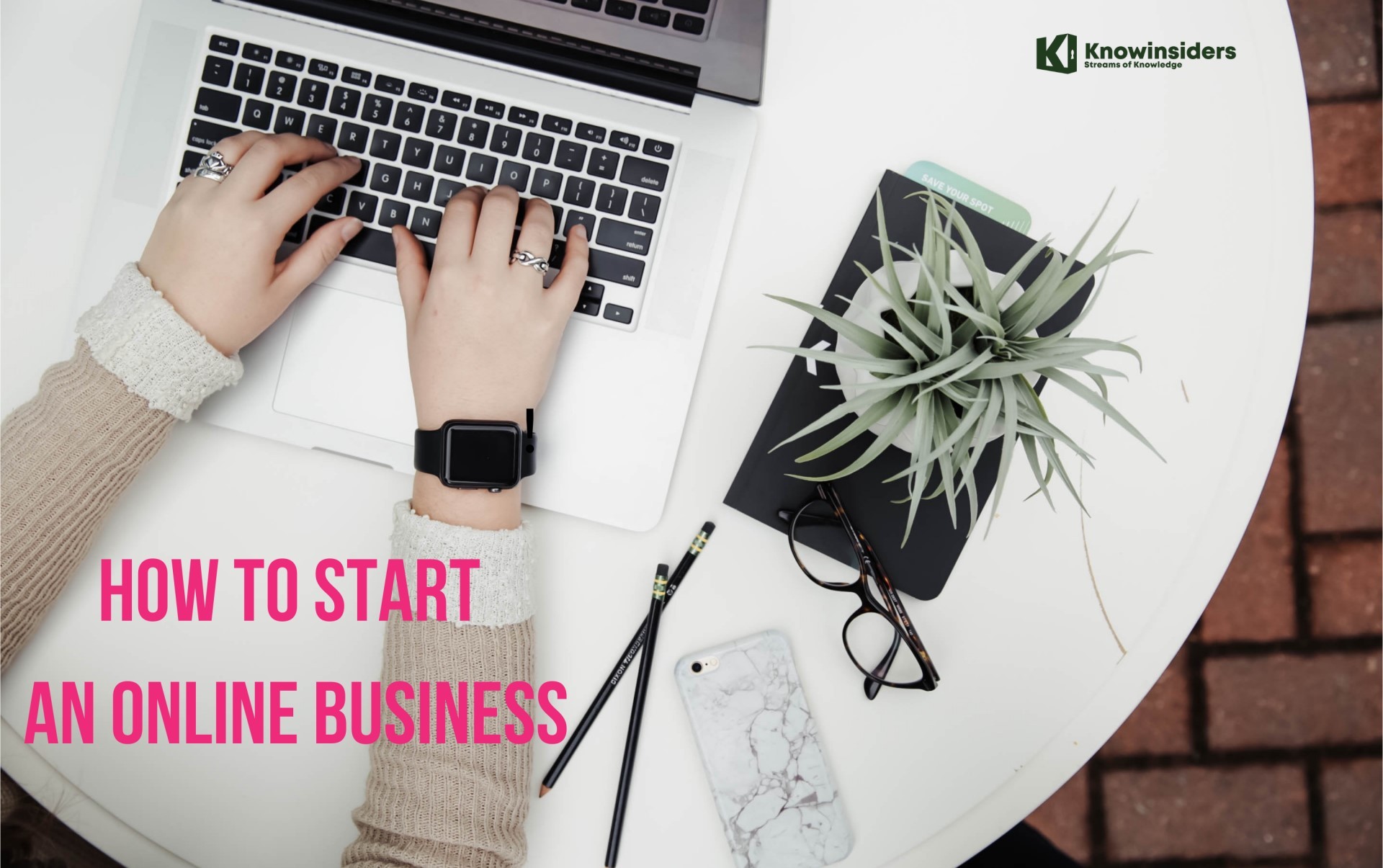How To Get A Best Business Loan With Bad Credit
 |
| Best Tips To Get A Business Loan With Bad Credit. Photo: KnowInsiders.com |
| Table of Content |
Poor credit, there are other places to get a loan for a business, such as online or through a nonprofit. To borrow money from a financial institution, you need to have good credit.
Loans made to borrowers with low credit scores will likely cost more because of the higher default rate associated with lending to these borrowers. If you need a business loan but have bad credit, it's in your best interest to shop around for the most favorable terms and to make sure the monthly payments are affordable.
What are business loans?
Businesses and banks or other lenders enter into lending contracts known as business loans. Businesses require capital, either to start up and start making a profit or to simply fund operations.
Banks and lenders are willing to lend them the cash up front as long as they repay it on time and with interest.
What is Considered Bad Credit?
What one lender might deem to be poor credit, another may deem to be acceptable. In light of this, it might be simpler to start by defining good credit and work backwards from there.
800-850 (Exceptional): Borrowers with scores over 800 will be able to select the credit options that are best for their circumstances, frequently with the lender of their choice.
If your credit score is in this range (740-799, Very Good), you are regarded as a low-risk borrower. With this credit score, a borrower will be able to pick and choose the loan that is best for their particular business use case.
A good score is one between 670 and 739, and many Americans have scores in this range. With this kind of score, a borrower can anticipate more options and approvals.
580-669 (Fair): This rating is regarded as moderate-risk. It is very likely that a small business loan will not have the best interest rates. Borrowers in this category typically won't be eligible for a small business loan from traditional lenders.
Borrowers with credit scores of 500 to 579 (poor) may be able to get some financing, but it's a high-risk score, so there may be fewer options and higher interest rates.
Below 500 (Very Poor): It is unlikely that a business owner will be approved for a loan with this credit score.
READ MORE: How To Start A Small Business From Best Ideas to Plan
Why your credit score matters
Please let lenders use your credit score as a risk indicator. The riskier you and your company appear, the lower your score is.
Before approving your application, traditional lenders (banks and credit unions) typically check your credit score; many require a minimum of 650. This isn't a set rule, but it at least offers a comparison without taking into account anything else.
Your personal credit score will be the only factor taken into account for startups and businesses with less than a year of operation. And even after you've established a business credit profile, for better or worse, your personal credit score is typically connected to your business. If you've been in business for more than a year, this means that both credit scores will be taken into account when you apply for a loan, with some lenders giving one profile a higher priority than the other.
| It can be challenging to obtain a loan when you have poor credit or no credit history. Before being approved for a loan, borrowers must submit an application outlining their income information and consent to a credit check, just like with the majority of financial products. Lenders prefer to work with clients who have a track record of making timely payments on their debts and earning enough money to do so while adhering to all conditions and agreements. |
What types of business loans are available for bad credit?
The door to getting funded isn't completely closed to those with bad credit. The best financing option for you will require some investigation on your part because every financing option is unique. To get you started, these are the most typical lending options you'll encounter.
standard bank loans
Because traditional lenders have restrictions on who they will finance, this option is less likely to be successful for those with poor credit. It is still possible, though. However, your interest rate will be higher than average, and you'll likely need to put up more collateral than a typical recipient.
Look into some of the SBA loan options if you believe you might still be eligible.
Microloan
Microloans are comparable to conventional bank loans, but they frequently come from nontraditional lenders like credit unions.
Due to the small loan amounts, which are typically $50,000 or less, a microloan is typically easier to obtain for those with poor credit. As a result, there are also less stringent credit requirements for these loans.
This is a fantastic option if the funding level suits your requirements. In addition to several alternative lending options like Kiva and Accion, the SBA offers a microloan program.
digital lenders
There seem to be more and more lenders for financial and digital technology every day. And this is unquestionably advantageous for people with poor credit. These lenders typically have very different requirements for applicants and place more weight on your financial stability and business history than your credit score.
To know what you're getting into, research a lender's track record, services, application requirements, and customer support before applying. To obtain financing in the future with better loan terms and more funding options, you might need to remain within their ecosystem.
advance on merchant credit
This option, also known as a business cash advance, is only available to people with cash flow issues who require ten thousand dollars or less. Especially if you miss a payment, cash advances typically have very high interest rates, which means you will almost certainly end up paying more overall than the original loan. Before taking this route, make sure you can make your payments on time.
commercial credit card
You can get financing and start establishing good business credit at the same time if you can get a credit card in your business's name, make purchases, and make on-time payments. Of course, each bank or credit union will have different eligibility requirements and different credit limits, interest rates, and payment terms, so this option won't be suitable for everyone.
credit line for home equity
This strategy, also known as "betting the farm," is only appropriate for people who own homes and is obviously very risky. You pledge your home as security to obtain a bank loan.
Profit-based loan
You must have a credit score of at least 550, your business must generate more than $100,000 in annual sales, and the loan amount cannot be greater than 10% of your revenue to qualify for this type of loan. This kind of loan can be obtained in as little as one week. You can find out more here if you meet these requirements.
family and friends
Obtaining a loan from friends and family is occasionally an option if you do have people in your life who could invest in your company. Naturally, for meBest Advice for New Businesses on Obtaining a Small Business Loan Their level of success is too high, or their circle of friends and family is small, or they may be struggling financially. Due to your poor credit, your family and friends might also believe it to be too risky.
Read More: How To Get A Small Business Loan: Best Tips for Startup Success
What Are the Best Bad Credit Small-Business Loans?BlueVine: Best for bad credit Biz2Credit: Best for loan options OnDeck: Best for short loan terms Rapid Finance: Best for product availability |
How Can You Choose the Best Bad Credit Business Loan?
When choosing a lender for your small business, pay close attention to the lender's:
Loan options.
Eligibility requirements.
Costs.
Customer service.
Keeping these factors in mind will help you find a lender with a better chance of approving your loan and offering you the best possible terms and costs.
Loan Options
Find a lender that offers the loan product you require, such as a term loan, business line of credit, or invoice financing.
Additionally, confirm that the terms and loan limits meet your requirements. You shouldn't submit an application with a lender that only offers tiny, short-term business loans if you need a $250,000 loan with a seven-year repayment period.
Eligibility Requirements
Applying for a loan that you don't qualify for doesn't make sense. Find out what a lender expects as a baseline for approval before you apply.
Ask about these and other factors:
Minimum personal credit score.
Minimum years in business.
Minimum annual revenue.
Costs
Seek a lender with the lowest costs, including:
Annual percentage rate.
Down payment.
Factor rate.
Origination fee.
Underwriting fees.
Closing costs.
Additional fees.
How to get a business loan with bad credit
If your FICO credit score is in the "bad credit" range, which is between 300 and 629, it doesn't necessarily mean you won't be approved for a loan. Even as you work to repair your credit, you can look into potential sources of immediate funding. To increase your chances of approval, take the following actions:
1. Understand your credit position
This is probably something you've already done as you work to raise your score, but it's always helpful to be fully aware of your position. You are entitled to one free credit report each year; request one and, if applicable, check your personal and business credit scores.
There are supplementary scores that can give you an idea of where you stand right now if you've already requested your annual report. Just be sure to stay away from any choices that ask for payment information or specify that a hard credit inquiry will be made.
2. Provide collateral
To help mitigate risk for the lender, you can offer up collateral against your loan. Common forms of collateral include:
Unpaid customer invoices
Equipment financing
Personal assets
Cash or savings accounts
Investment accounts
This does, however, slightly raise your risk, particularly if your business experiences a prolonged downturn. Only put up collateral you're willing to lose if something goes wrong and you have to make debt payments.
3. Add a co-signer
Similar to adding reliable partners, adding a co-signer signifies their willingness to shoulder some of the loan's financial liability. A co-signer should typically be able to cover payments in the event that you are unable to do so and have good credit.
4. Review eligibility requirements
You must satisfy a specific set of eligibility requirements for each type of financing. Alternative lenders will probably require more accessible criteria to assess your creditworthiness in contrast to traditional lenders, who will concentrate on your long-term business history and personal credit.
Find a lender that suits your needs by doing your research. To increase your chances of being accepted, look for options that play to your company's advantages.
5. Apply for a lower amount of funding
Your chances of getting a loan will increase if you ask for the appropriate amount of money, which is supported by your business plan and current financials. Additionally, it will make repayment simpler for you. You don't want to take on more debt than is necessary, and you definitely don't want to accumulate a sizable debt that you won't be able to pay back.
Review your business plan, P&L statement, balance sheet, and financial projections before submitting an application. See if there are any areas where you can reduce overhead, reduce variable costs, or generate more revenue. To determine how much of a loan you need and can afford if things go wrong, run numerous forecasts for the best, worst, and actual scenarios.
Then submit an application for that amount. You're in a better position to pay off your current loan and apply for more financing if things go well and you need more money to expand.
What is considered a bad credit score?Here is how lenders classify “fair” and “poor” credit scores: FICO Score Very poor: 300 to 579 Fair: 580 to 669 Good: 670 to 739 Very good: 740 to 799 Excellent: 800 to 850 VantageScore Very poor: 300 to 499 Poor: 500 to 600 Fair: 601 to 660 Good: 661 to 780 Excellent: 781 to 850 Scores lower than 670, and certainly scores lower than 600, will most likely disqualify you for the most affordable personal loans. But if you’re in a pinch, it’s not all-out impossible to get a loan with a credit score in the high 500s or low 600s. |
What to do if you can’t get approved for a business loan
Borrowers with low credit scores do have options, but not all loan applications will be accepted. Borrowers who are unable to obtain a business loan due to a low personal credit score should concentrate their efforts on taking steps to raise their score right away.
A strong personal score cannot be achieved quickly, but there is good news. Working on your personal score on a regular basis will help you raise it over time. By following these instructions, you can raise your score:
It's human nature to have an effect on the things we pay the most attention to, and your personal credit scores are no exception. Fortunately, you can track your score for free using Nav or a few other platforms. As an alternative, you can pay for services offered by the big credit bureaus to keep an eye on your credit. This is crucial to ensuring the accuracy of the data in your credit report. There is a procedure in place at each credit bureau to correct false or misleading information.
Reduce your monthly credit obligation: The ratio between your available credit and your credit usage plays a significant role in determining your credit score. The objective should be to keep your credit usage at 20–30% or less. If you currently only pay the minimum amount due on all three of your credit cards, choose one and start paying more until you have paid off that card. starting with the following card. The lower the percentage, the better.
Make on-time payments on all loans and credit cards: Making your periodic payments on time is the most effective thing you can do to raise your score. Though it won't happen overnight, building a history of on-time payments will raise your score.
What’s the difference between secured vs. unsecured loans?
A loan that is secured has collateral as security. Mortgages and auto loans, which use your home or vehicle as collateral, are the two most popular forms of secured loans. In actuality, though, collateral can be any type of financial asset you own. Additionally, the bank has the right to take your collateral as payment if you default on your loan. Your credit report will reflect a repossession for up to seven years.
Unsecured loans do not require collateral, but they still have interest and occasionally fees. Unsecured loans include credit cards, personal loans, and student loans.
Because unsecured loans lack collateral, financial institutions base their decision to approve you on your credit report, income, and history of on-time debt repayment. Due to this, unsecured loans may (though not always) have higher interest rates than secured loans.
Top US companies offering the best loans to people with bad credit
Avant: Best personal loan
Interest rates: 9.95% to 35.99%
Minimum credit score: 580
Minimum loan amount: $2,000
Avant offers personal loans to borrowers with credit scores as low as 600, unlike many other lenders who only work with borrowers with the highest credit scores. Many more borrowers, even those with bad credit, can access them thanks to Avant. The online lender provides loans up to $35,000 for individuals.
What to be aware of: The cost of borrowing is increased by an administrative fee of 4.75%. Personal loans typically have higher interest rates than other forms of borrowing. This holds true for all personal loan providers, not just Avant.
LendingClub: This well-known online peer-to-peer lender offers APRs comparable to those of Avant but does not have a minimum credit score and may charge higher origination fees ranging from 2% to 6%.
OneMain Financial
Interest rates start at 18% through this lender, making it an expensive option.
Upgrade
This online lender's origination fees can be as high as 8%.
LendingPoint
Avant's slightly lower interest rate and lower origination fees are a better option due to interest rates starting at 9.99% and fees up to 6%.
 How To Get A Small Business Loan: Best Tips for Startup Success How To Get A Small Business Loan: Best Tips for Startup Success Money is important if you want to start your business, which small business loan will help with that. To better understand what it is and ... |
 How To Register and Choose A Business Name? How To Register and Choose A Business Name? After choosing a business name for your new company, you will want to register it to prevent others from using it. There are several ways ... |
 How To Start A Small Business From Best Ideas to Plan How To Start A Small Business From Best Ideas to Plan Running a business can significantly impact your life and the lives of those around you. But before you can run a business, you need to ... |

























